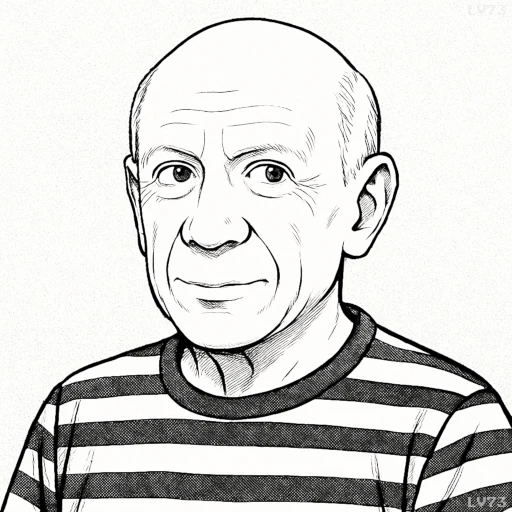“Work is a necessity for man. Man invented the alarm clock.”

- October 25, 1881 – April 8, 1973
- Born in Spain
- Painter, sculptor, printmaker
table of contents
Quote
“Work is a necessity for man. Man invented the alarm clock.”
Explanation
In this quote, Picasso reflects on the human need for work and the systems we have created to regulate and manage it. By mentioning the invention of the alarm clock, he emphasizes the idea that, despite our desire for rest or freedom, work has become an inevitable part of human life. The alarm clock, a tool invented to wake people up and ensure they begin their day at a specific time, symbolizes how human beings have structured their lives around labor. Picasso’s statement seems to underline that work is not only essential for survival, but also an integral part of how we define and structure our existence, even if it’s something that requires artificial motivation—such as the alarm clock—to start.
This idea resonates strongly in modern times, where the work culture often dominates daily life, with the need to perform and produce constantly guiding people’s schedules. Many people today live by strict routines, marked by the ringing of alarm clocks and the structure of working hours. Picasso’s words serve as a reflection on how our lives are shaped by work, even though we may yearn for more freedom or spontaneity. Despite this, Picasso may also be hinting at the value of work—not only for survival, but as a means of purpose and self-expression, especially for artists who view their work as a form of personal necessity.
An example of this can be seen in how entrepreneurs or creative professionals structure their lives around their work—often sacrificing personal time to achieve their goals. In the field of technology, figures like Elon Musk maintain extremely rigorous schedules, emphasizing that hard work is critical to success. Similarly, artists like Pablo Picasso himself often dedicated long hours to their craft, driven by an inner compulsion to create, despite the rigid schedules that society imposes. Picasso’s quote highlights the human paradox of being tied to the necessity of work, while also acknowledging that work often becomes a path to meaning, even when enforced by an external structure.
Would you like to share your impressions or related stories about this quote in the comments section?




